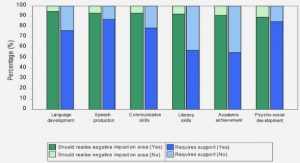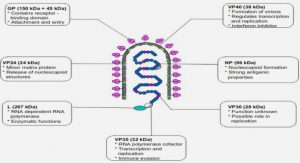Get Complete Project Material File(s) Now! »
Fit Between Environment and Firms
A strong link exists between the industry environment and the firms operating in it, and these different elements needs to be in balance. Actually, organizations strive to create stability between itself and its environment, so if environment changes, firms should as well.
Balogun & Hailey, with Johnson & Scholes (1999) concurs and argue that organizational change must be in-line with the environment of the firm. Thus; when a firm changes it must consider alignment with the specific context of the firm, but also; whenever the environment changes firms need to respond with alignment. This indicates that environmental change (created by the block exemption) in the car dealer industry, also should lead to change of the firms in the industry.
Industrial Wisdom and Interpretation of Reality
As environment and firms change, understanding of the industry also changes. Industrial wisdom can be described as a reasonable, consistent, yet subjective sense-making of reality in an industry. This sense-making is a way to understand and justify firm behavior and it is not questioned by incumbents. However, industrial wisdom and reality are not synonymous.
Rather, industrial wisdom is the perception of reality, shared within an industry (Melin, 1987; Melander in Melander & Nordqvist, 2008; Melander, 1997). The car dealer environment changed (due to the block exemption) and this thesis explores whether this change affected industrial wisdom, and how. How was this change perceived and interpreted by the actors in the industry?
Note that interpretations are always subjective and depend on who makes them: different persons interpret things in different ways (Melin, 1987). People look at the world through different glasses, representing their previous experiences, knowledge, and beliefs et cetera.
These glasses manage our mind to disregard some data as irrelevant, and to act on other data because it is interpreted as relevant and useful. Thus we do not act on an objective, actual reality (if such a thing truly exists); we act depending on how we interpret the world.
Therefore it made perfect sense to explore how car dealers interpreted change (in the industry and in the firm) simply because these interpretations of change are the actual ground for their actions. Industrial wisdom is important to investigate because of its connection with environment perception and company behavior.
Cognitive Maps
As an industry changes, so does the perception of it, which leads us to the concept of human cognition. Reger & Palmer (1996) claim that there are two basic mind sets: the automatic and the controlled. The automatic cognitive map is unconscious, while the controlled mind set allows managers to make conscious and rational calculations and decisions. Cognitive maps and automatic thinking makes managers think and act in the way they usually do, almost like an unconscious, habitual response. It may be very hard to look at new issues in a new way. Thus, managers have to be mindful of his behavior; is environmental data collected the same way it always has? In that case, what data are we passively disregarding? To ask these questions is to challenge experience and a behavior that has worked in the past. Thus, changing cognitive maps can be very difficult, especially in a mature industry like the car dealer industry. This is why it is so interesting to see if cognitive maps and industrial wisdom (which can be interpreted as the industry-wide cognitive map) have changed.
Problem
This thesis was a natural part of our graduate studies within business and management, but what is more important; the understanding and knowledge we have accumulated during this process will always be a big support as we move on to business life. This research aimed to contribute to the development of knowledge and research within this topic, but also to contribute to the car dealer industry and their understanding of their own shared perceptions. The reason for why industrial wisdom is so important to investigate is because of its link to understanding the environment. Understanding the context in which a company acts is essential for strategy making, and other strategic processes such as analysis, planning and actions. Hence, this thesis has the potential to inspire consideration of the basis on which strategy is crafted. In the end we present our model; or rather a development of other theories and models, combined in a new way.
Reger and Palmer (1996) pointed out that little research had been conducted on how environmental
changes lead to cognitive changes, and they suggested further research on this topic. This is exactly what we have done in this thesis: we have examined the link between environmental change and industrial wisdom, and thus also treated cognitive maps. Further, Akpinar (2007) claim that not much have been written about what impact institutional regulations have on industry structure, and this is why we look at how an institutional regulation (the 1400/2002 block exemption) affected industrial wisdom in the car dealer indus5 try. We have found research conducted on the topics of institutional pressure and industrial wisdom, but not any research that combine the two like we do in this thesis.
1 Introduction
1.1 Background
1.2 Problem
2 Purpose
3 Research Questions
4 Method
4.1 Perspective
4.2 Delimitation
4.3 Values and Point of Departure.
4.4 Research Approach
4.5 Research Process and Strategy
4.6 Reliability and Validity..
5 Frame of Reference
5.1 Environment.
5.2 Industrial Wisdom
5.3 Industrial and Company Structure
5.4 Cognitive Maps
5.5 Active Inertia
5.6 Model of Theoretical Framework .
6 Results and Analysis
6.1 Part 1
6.2 Part 2 .
6.3 The Loop of Wisdom
7 Conclusion.
8 Discussion
GET THE COMPLETE PROJECT
Institutional Pressure & Industrial Wisdom






